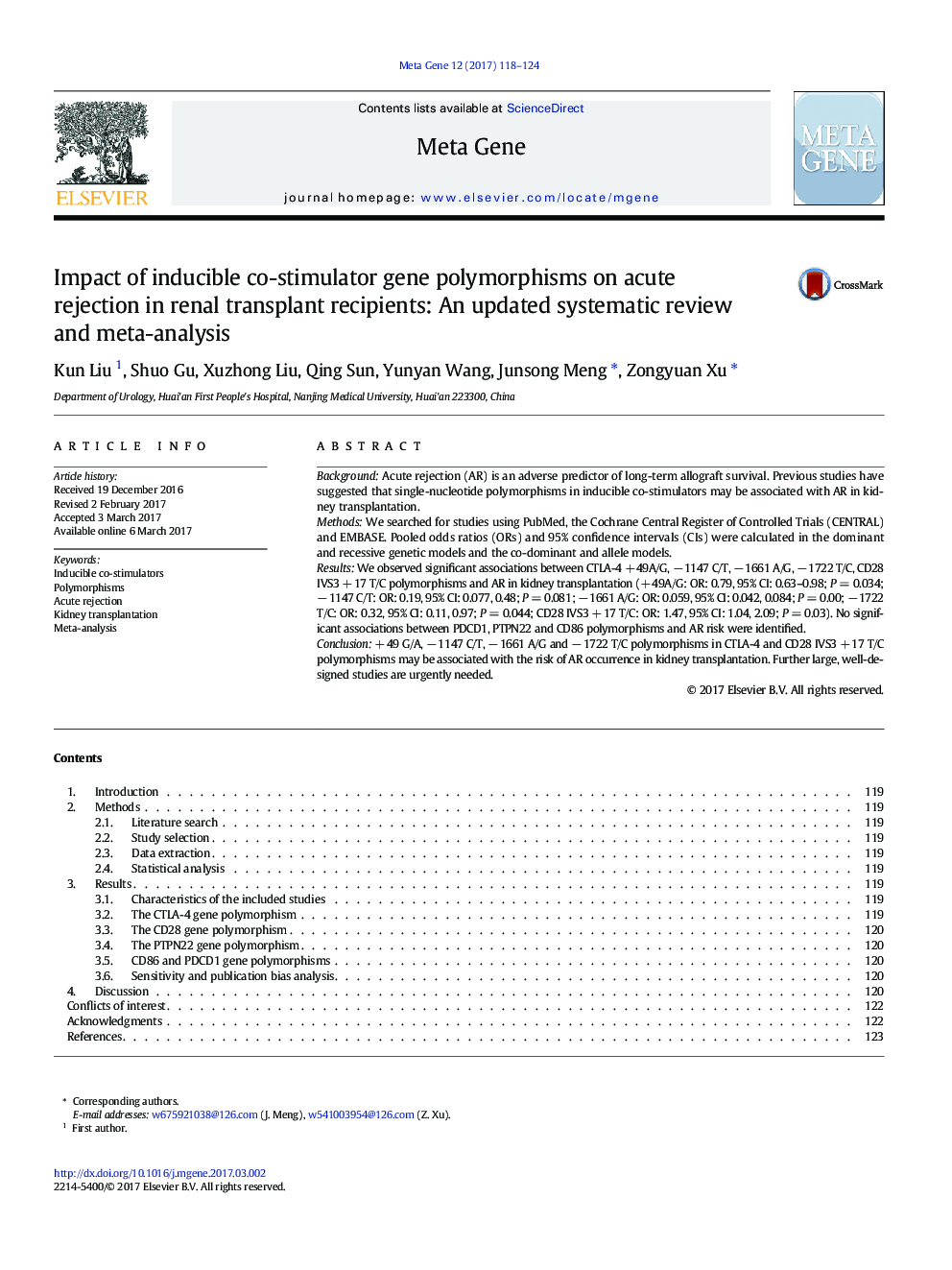| Article ID | Journal | Published Year | Pages | File Type |
|---|---|---|---|---|
| 5518416 | Meta Gene | 2017 | 7 Pages |
BackgroundAcute rejection (AR) is an adverse predictor of long-term allograft survival. Previous studies have suggested that single-nucleotide polymorphisms in inducible co-stimulators may be associated with AR in kidney transplantation.MethodsWe searched for studies using PubMed, the Cochrane Central Register of Controlled Trials (CENTRAL) and EMBASE. Pooled odds ratios (ORs) and 95% confidence intervals (CIs) were calculated in the dominant and recessive genetic models and the co-dominant and allele models.ResultsWe observed significant associations between CTLA-4 + 49A/G, â 1147 C/T, â 1661 A/G, â 1722 T/C, CD28 IVS3 + 17 T/C polymorphisms and AR in kidney transplantation (+ 49A/G: OR: 0.79, 95% CI: 0.63-0.98; P = 0.034; â 1147 C/T: OR: 0.19, 95% CI: 0.077, 0.48; P = 0.081; â 1661 A/G: OR: 0.059, 95% CI: 0.042, 0.084; P = 0.00; â 1722 T/C: OR: 0.32, 95% CI: 0.11, 0.97; P = 0.044; CD28 IVS3 + 17 T/C: OR: 1.47, 95% CI: 1.04, 2.09; P = 0.03). No significant associations between PDCD1, PTPN22 and CD86 polymorphisms and AR risk were identified.Conclusion+ 49 G/A, â 1147 C/T, â 1661 A/G and â 1722 T/C polymorphisms in CTLA-4 and CD28 IVS3 + 17 T/C polymorphisms may be associated with the risk of AR occurrence in kidney transplantation. Further large, well-designed studies are urgently needed.
